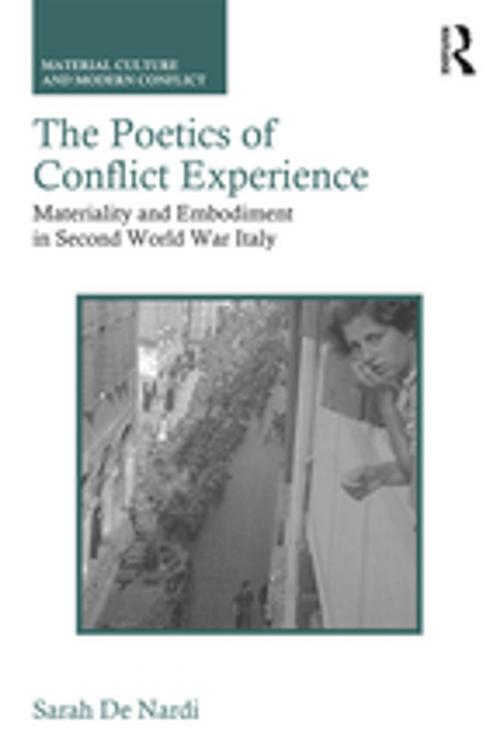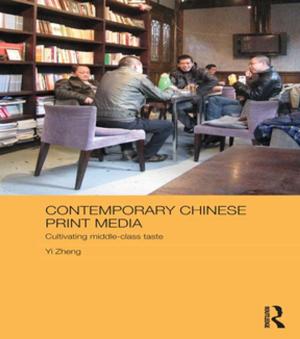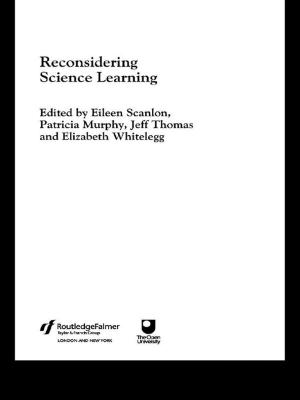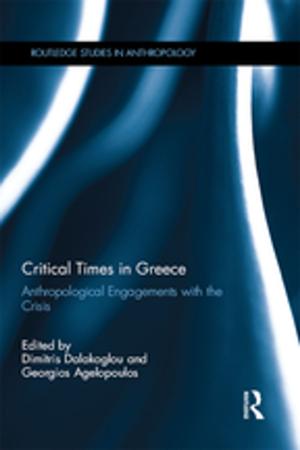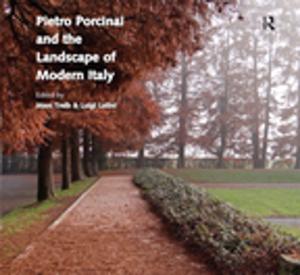The Poetics of Conflict Experience
Materiality and Embodiment in Second World War Italy
Nonfiction, History| Author: | Sarah De Nardi | ISBN: | 9781315308852 |
| Publisher: | Taylor and Francis | Publication: | November 25, 2016 |
| Imprint: | Routledge | Language: | English |
| Author: | Sarah De Nardi |
| ISBN: | 9781315308852 |
| Publisher: | Taylor and Francis |
| Publication: | November 25, 2016 |
| Imprint: | Routledge |
| Language: | English |
Seventy years after the end of the Second World War we still do not fully appreciate the intensity of the lived experience of people and communities involved in resistance movements and subjected to German occupation. Yet the enduring conjunction between individuals, things and place cannot be understated: from plaques on the wall to the beloved yellowing relics of private museums, materiality is paramount to any understanding of conflict experience and its poetics. This book reasserts the role of the senses, the imagination and emotion in the Italian war experience and its remembrance practices by tracing a cultural geography of the everyday material worlds of the conflict, and by digging deep into the multifaceted interweaving of place, person and conflict dynamics. Loneliness, displacement and paranoia were all emotional states shared by resistance activists and their civilian supporters. But what about the Fascists? And the Germans? In a civil war and occupation where shifting allegiances and betrayal were frequent, traditional binary codes of friend-foe cannot exist uncritically. This book incorporates these different actors’ perceptions, their competing and discordant materialities, and their shared – yet different – sense of loss and placelessness through witness accounts, storytelling and memoirs.
Seventy years after the end of the Second World War we still do not fully appreciate the intensity of the lived experience of people and communities involved in resistance movements and subjected to German occupation. Yet the enduring conjunction between individuals, things and place cannot be understated: from plaques on the wall to the beloved yellowing relics of private museums, materiality is paramount to any understanding of conflict experience and its poetics. This book reasserts the role of the senses, the imagination and emotion in the Italian war experience and its remembrance practices by tracing a cultural geography of the everyday material worlds of the conflict, and by digging deep into the multifaceted interweaving of place, person and conflict dynamics. Loneliness, displacement and paranoia were all emotional states shared by resistance activists and their civilian supporters. But what about the Fascists? And the Germans? In a civil war and occupation where shifting allegiances and betrayal were frequent, traditional binary codes of friend-foe cannot exist uncritically. This book incorporates these different actors’ perceptions, their competing and discordant materialities, and their shared – yet different – sense of loss and placelessness through witness accounts, storytelling and memoirs.
